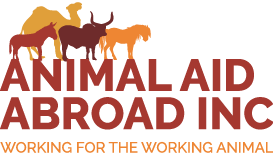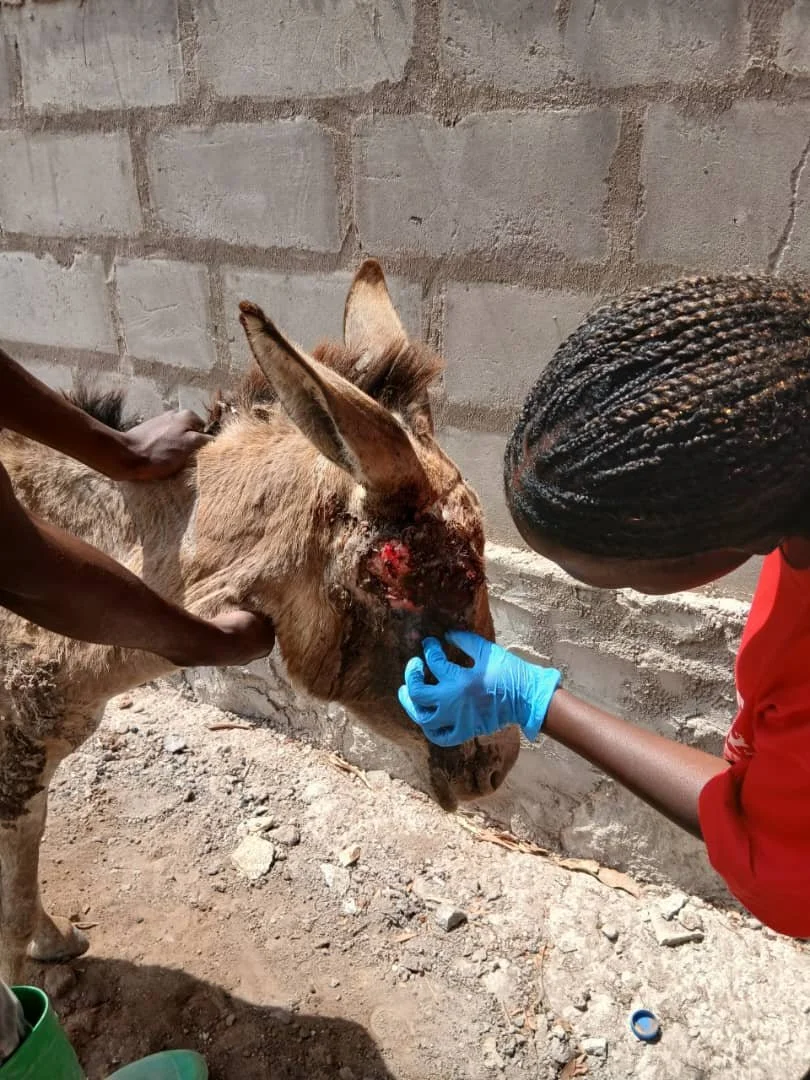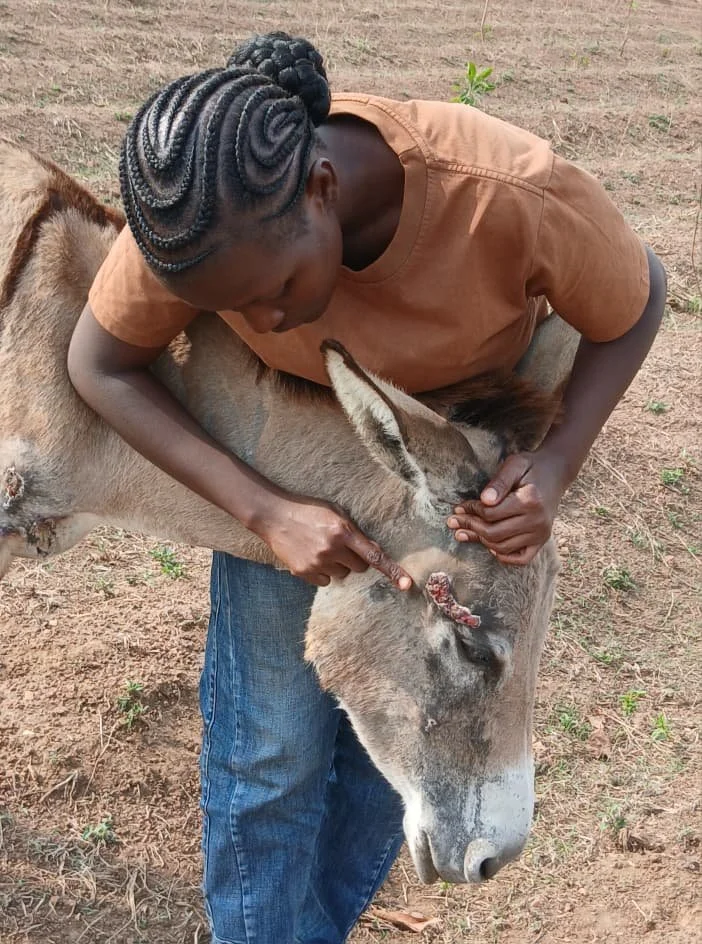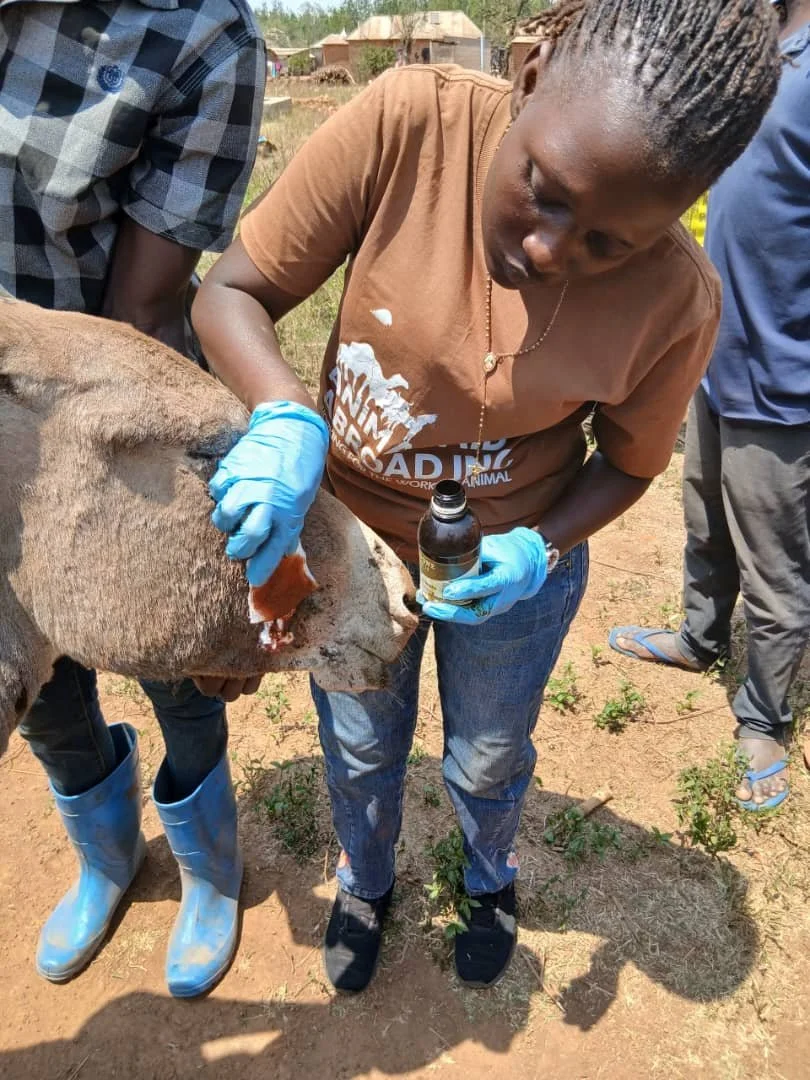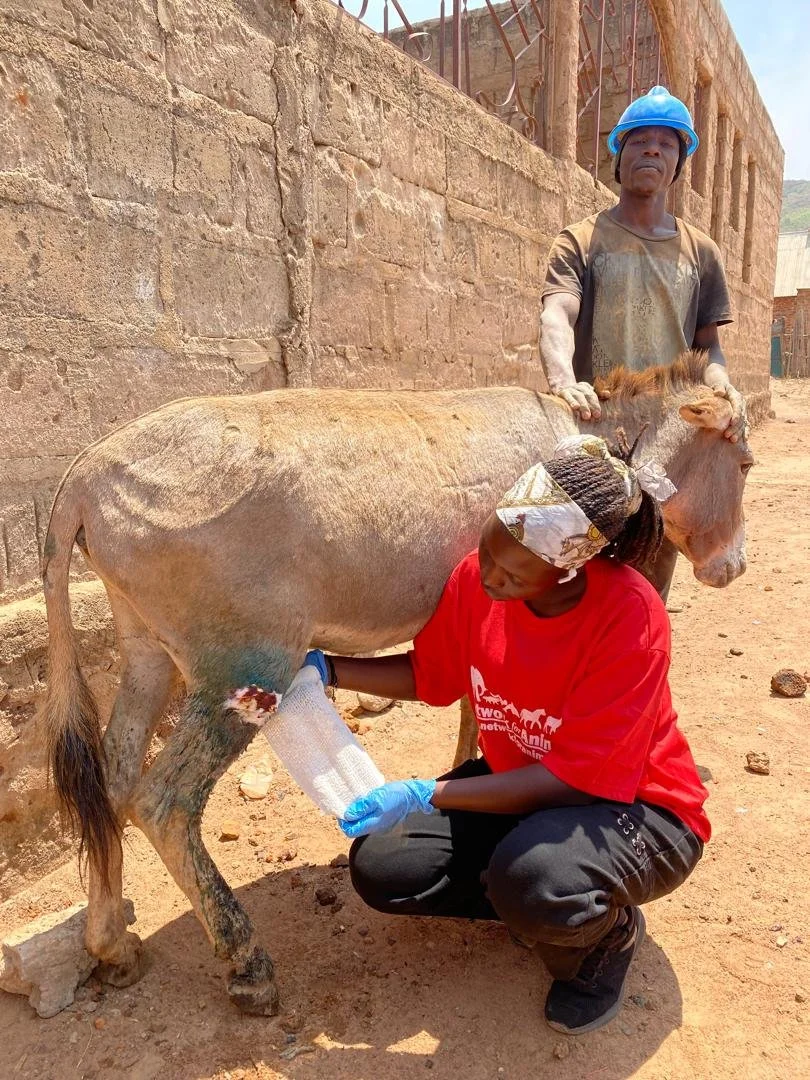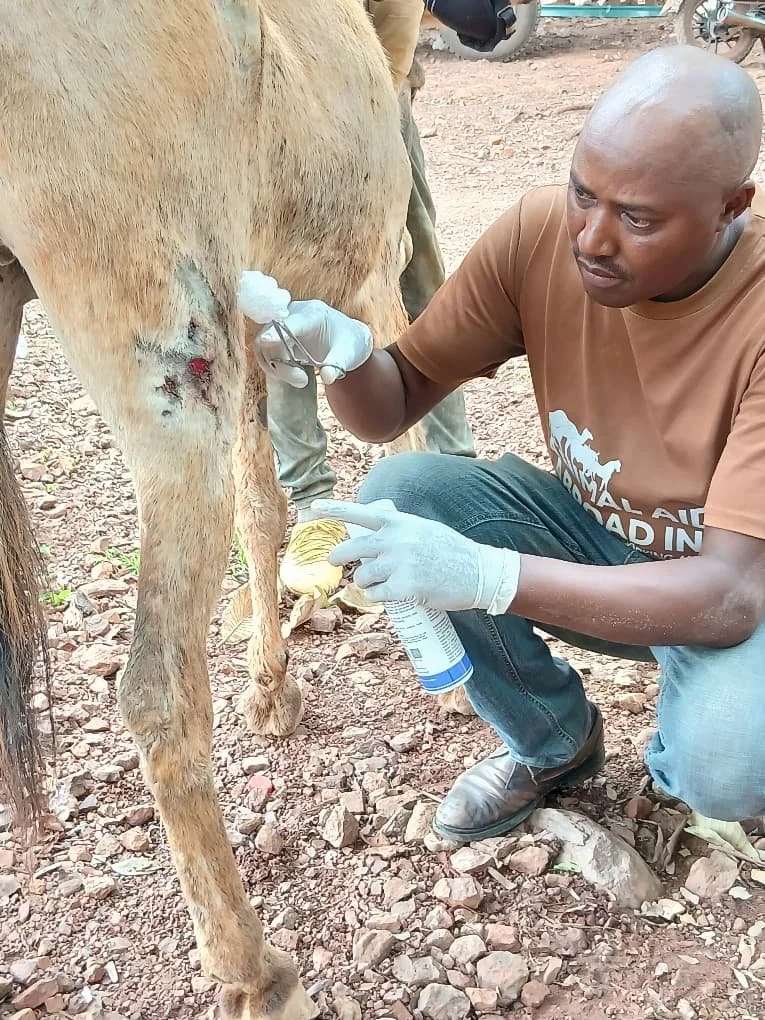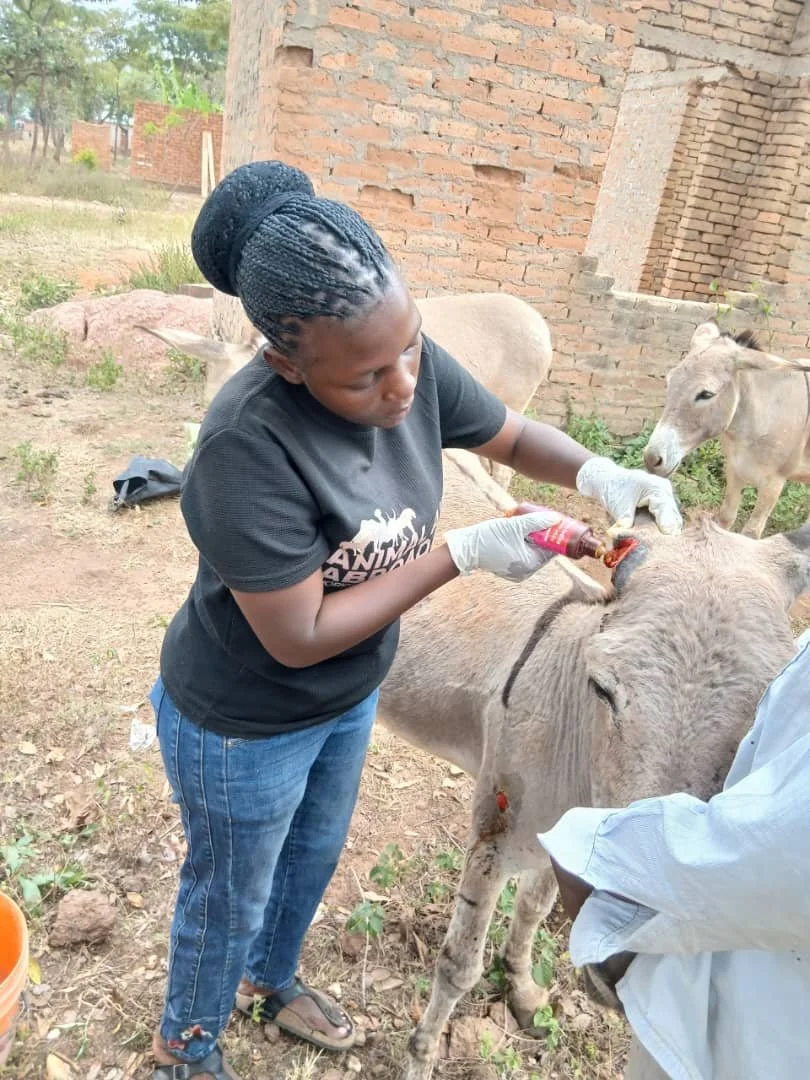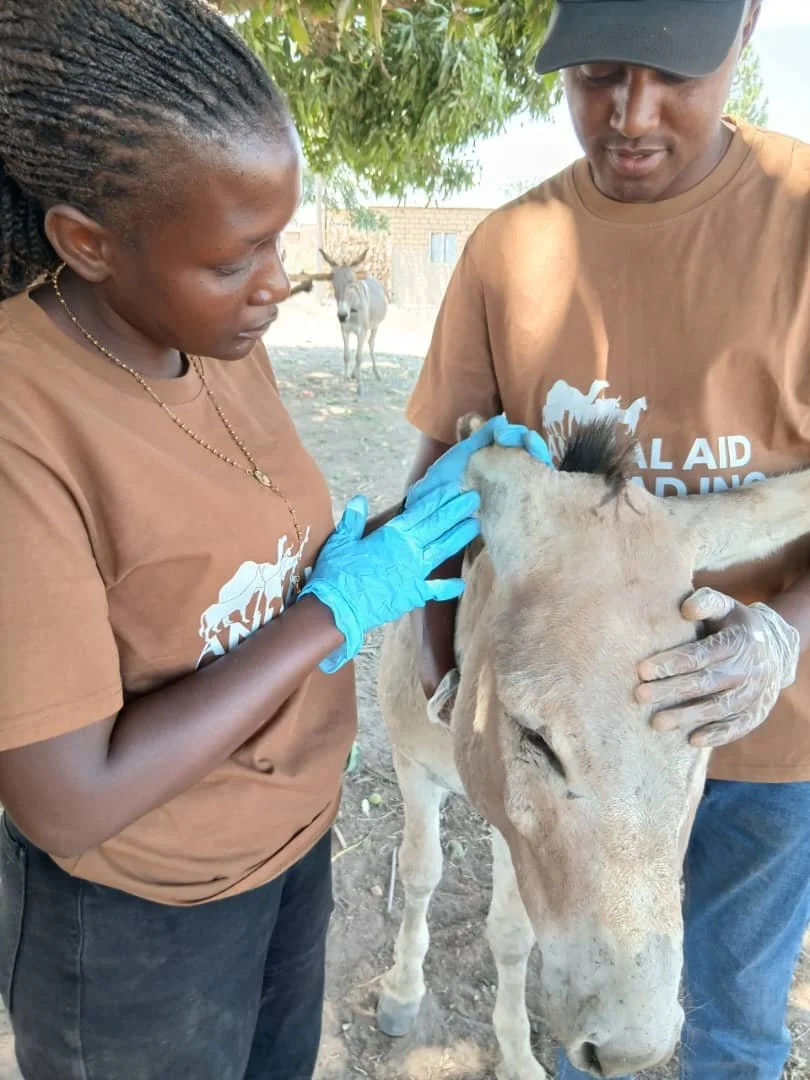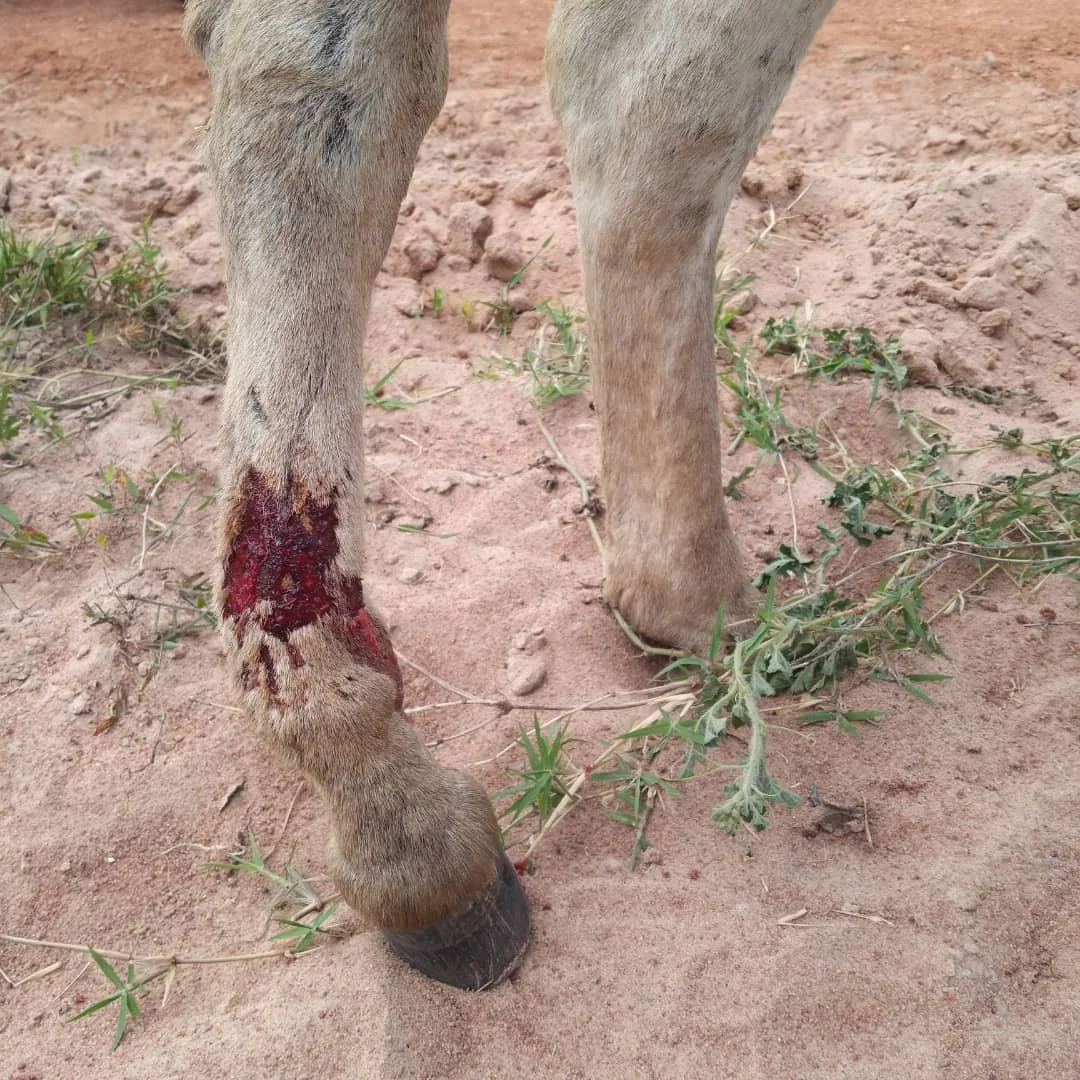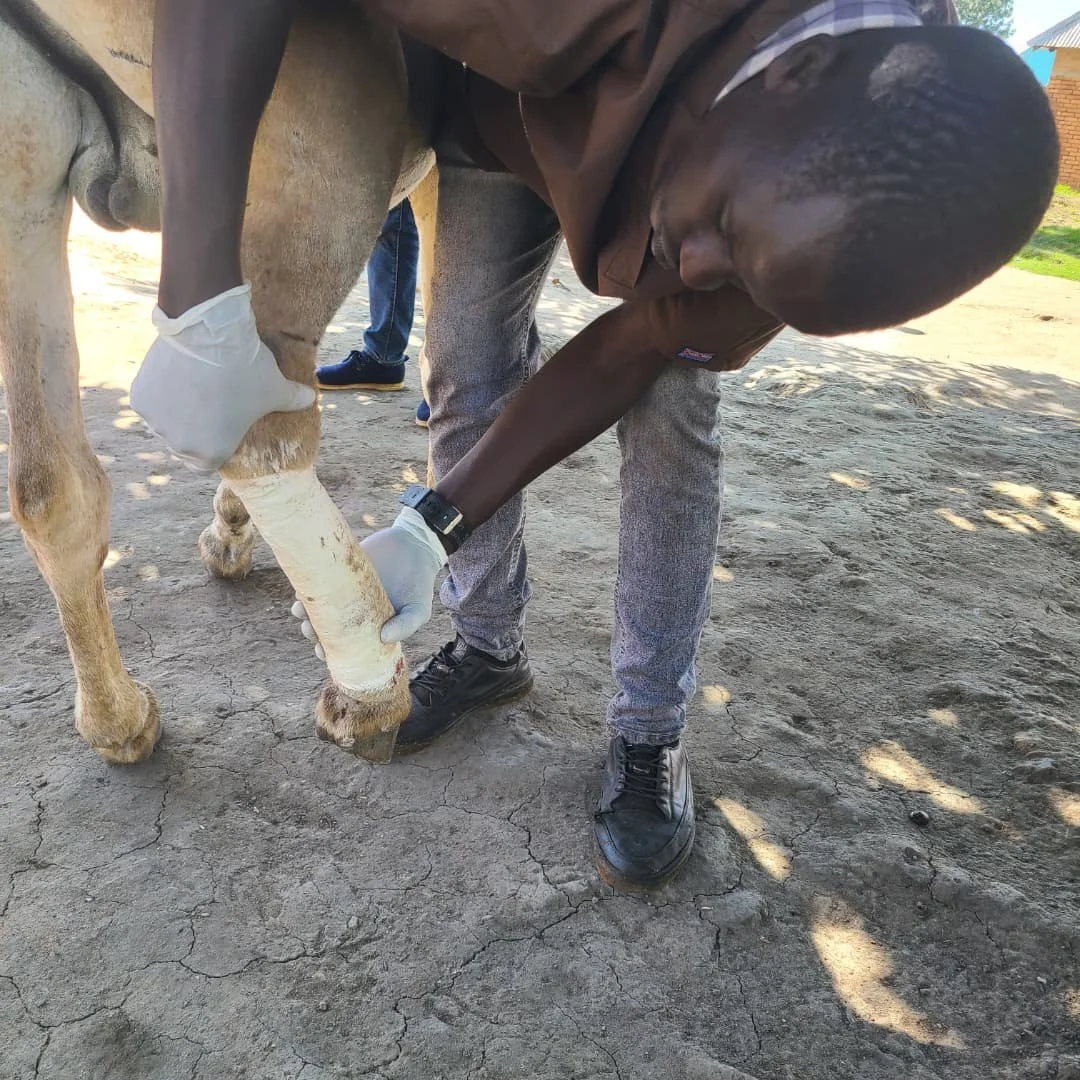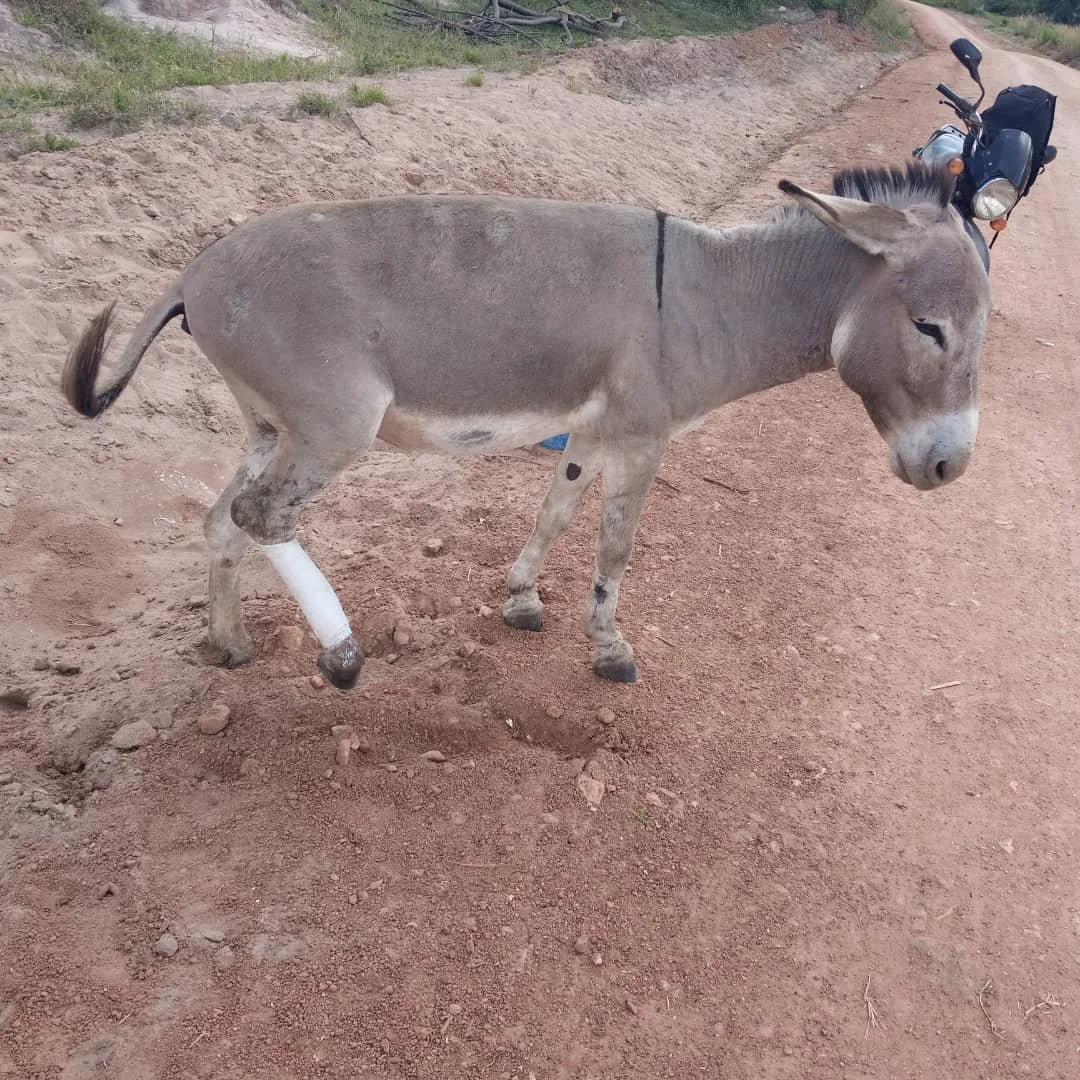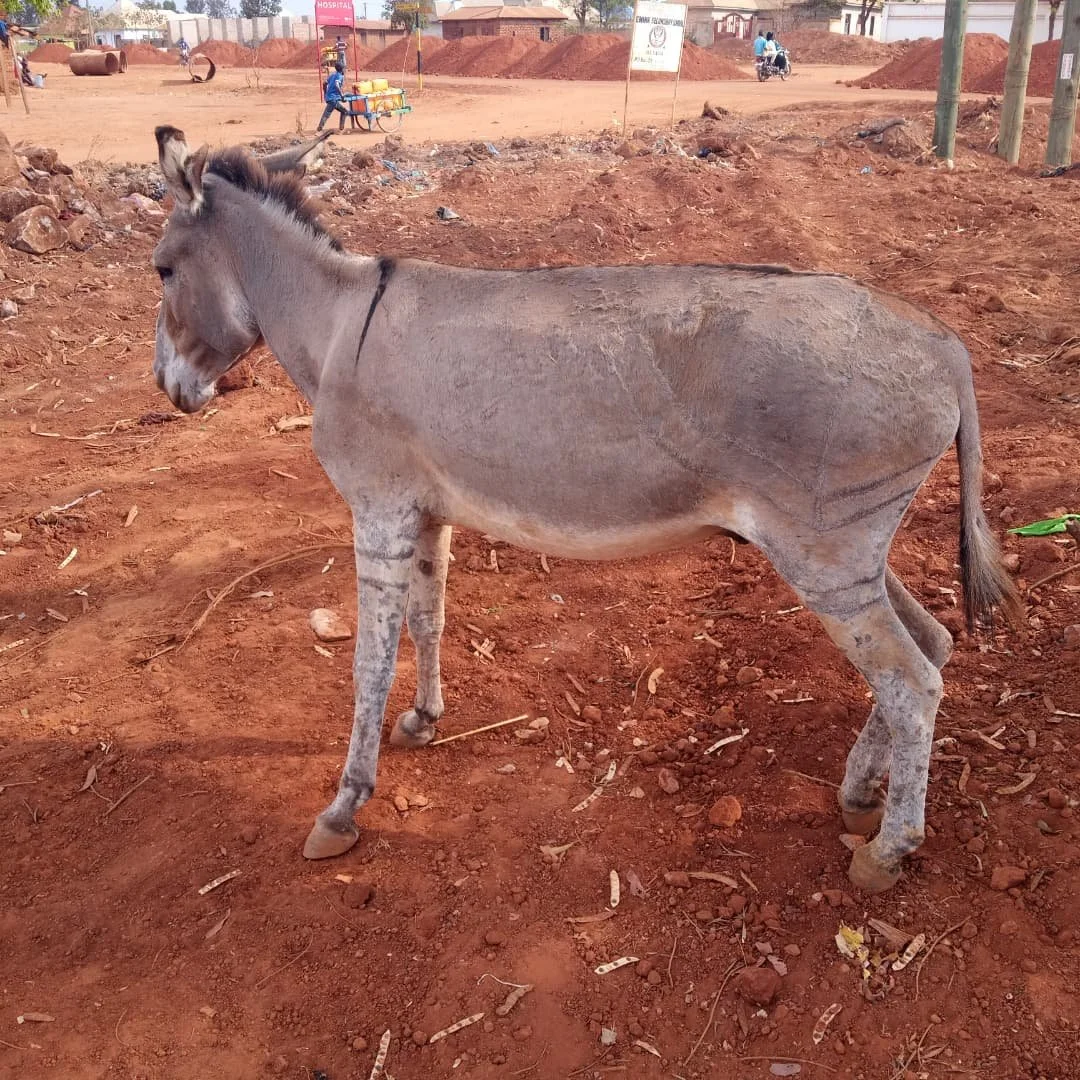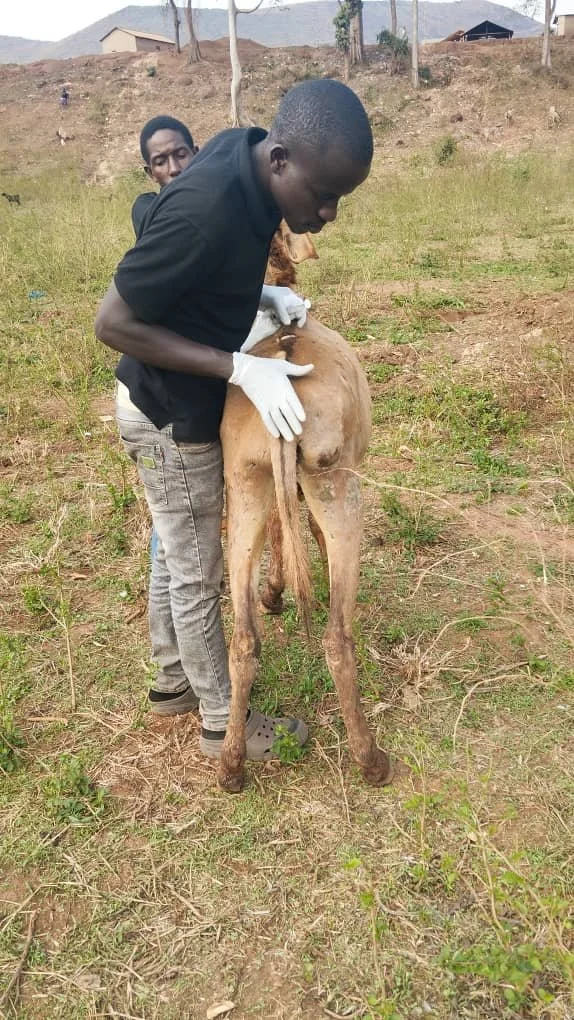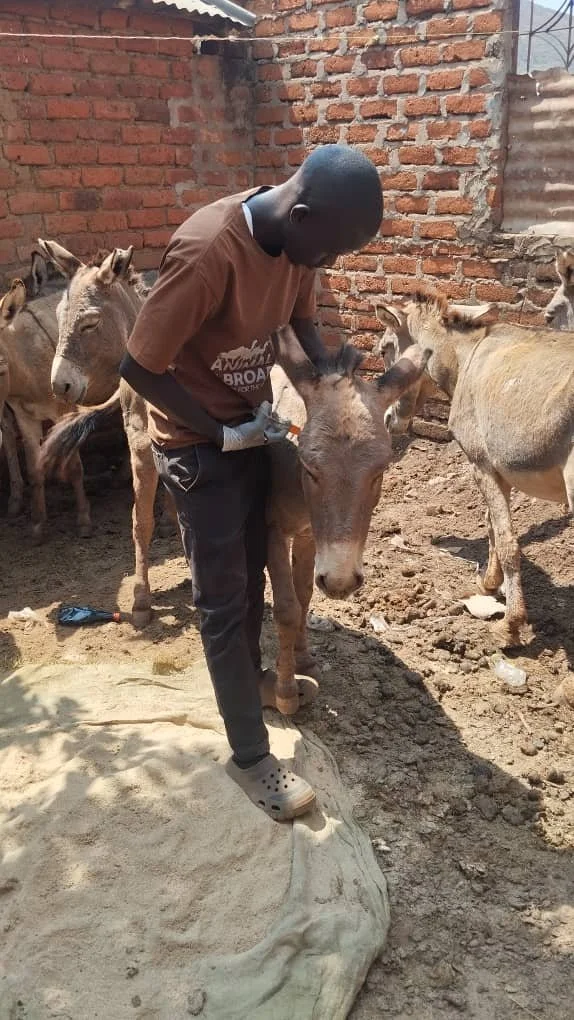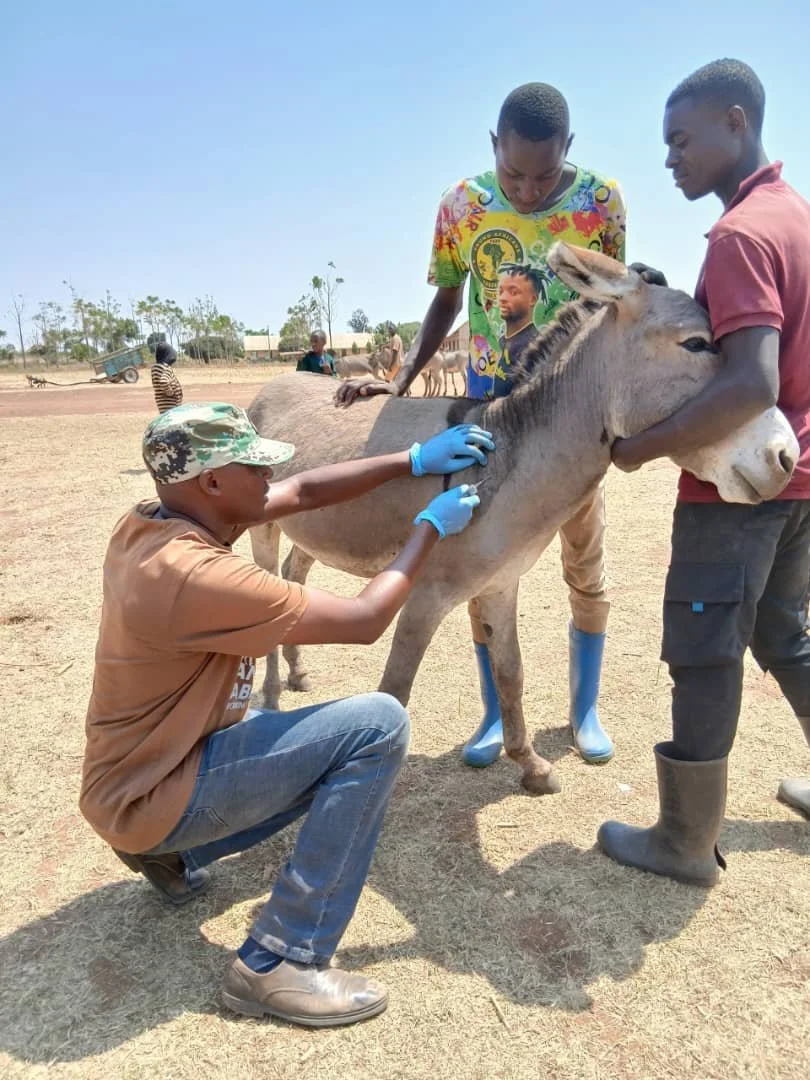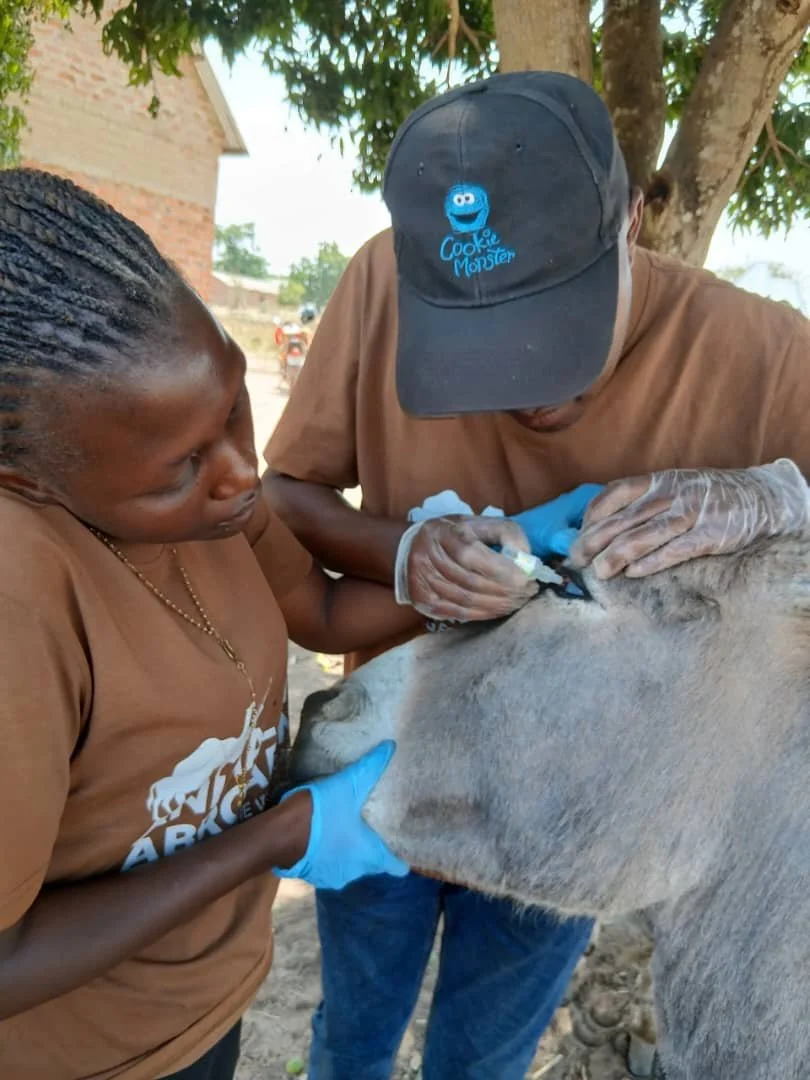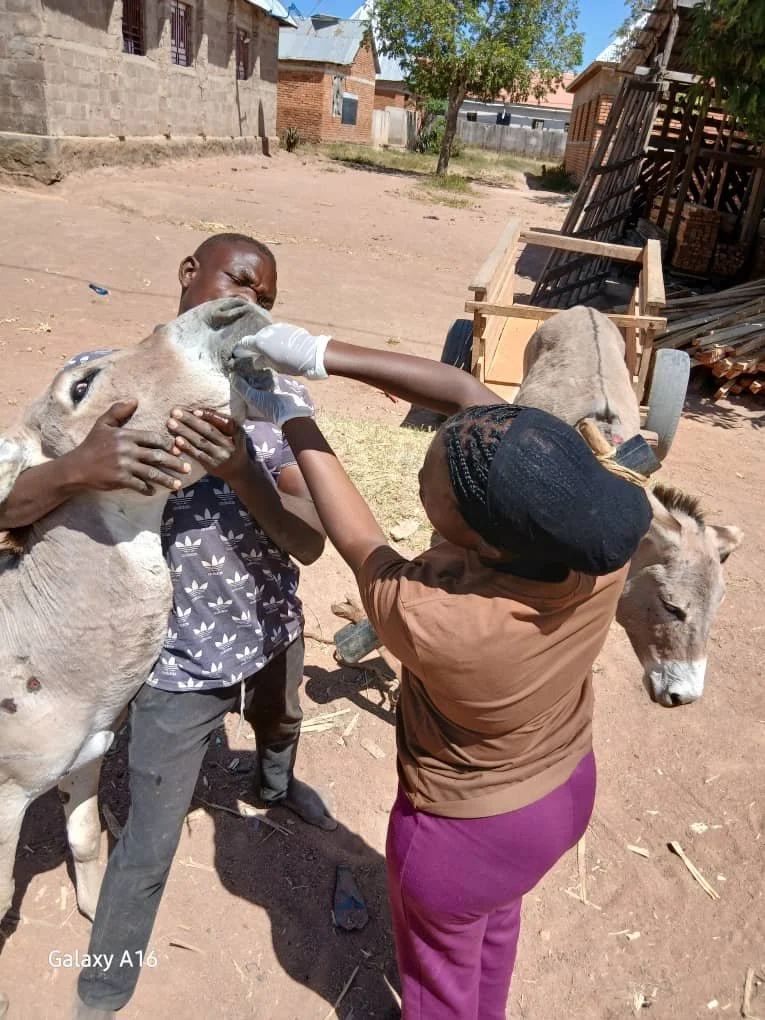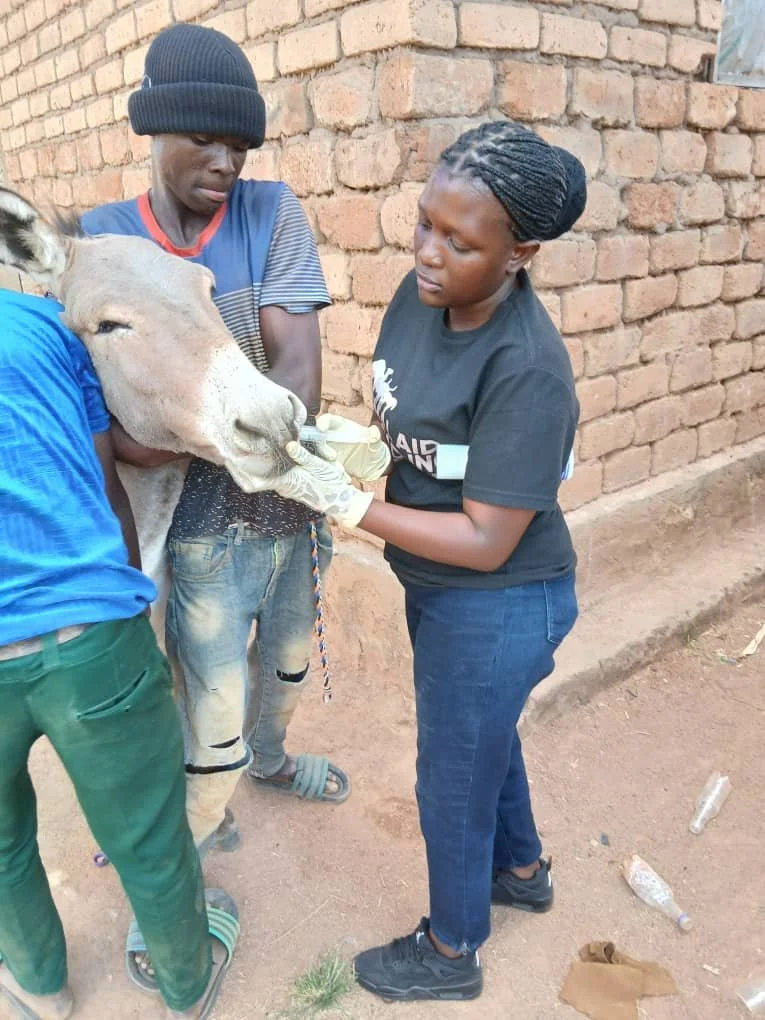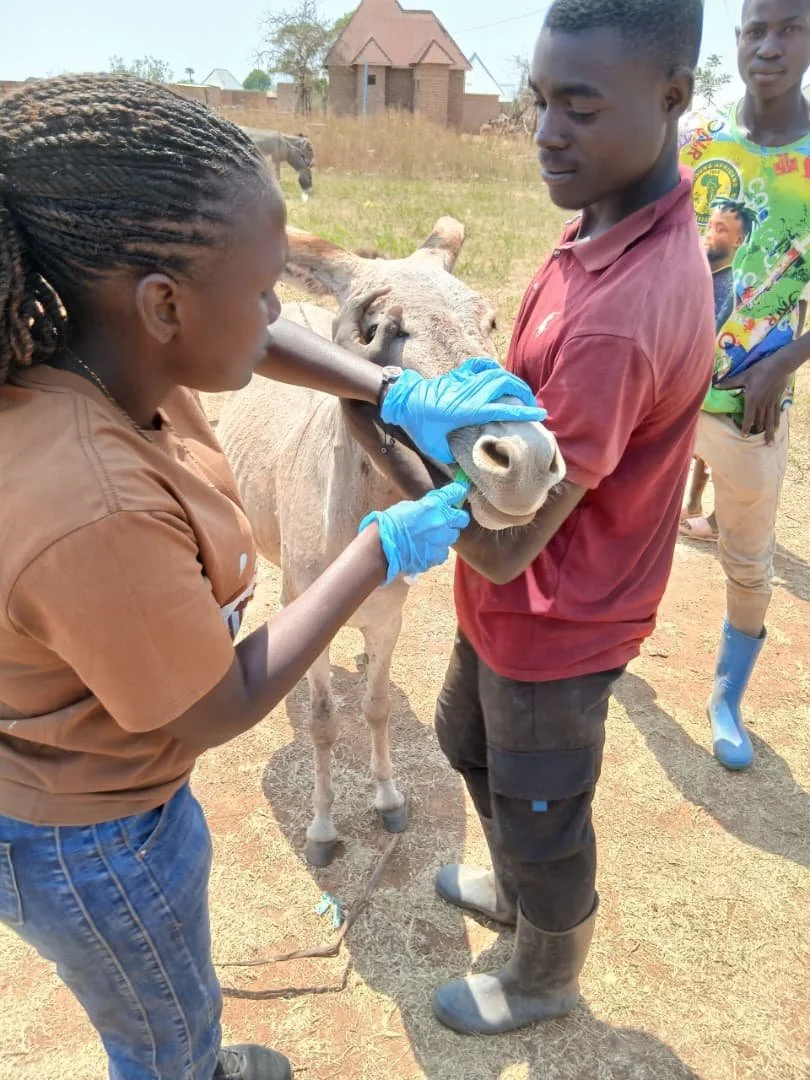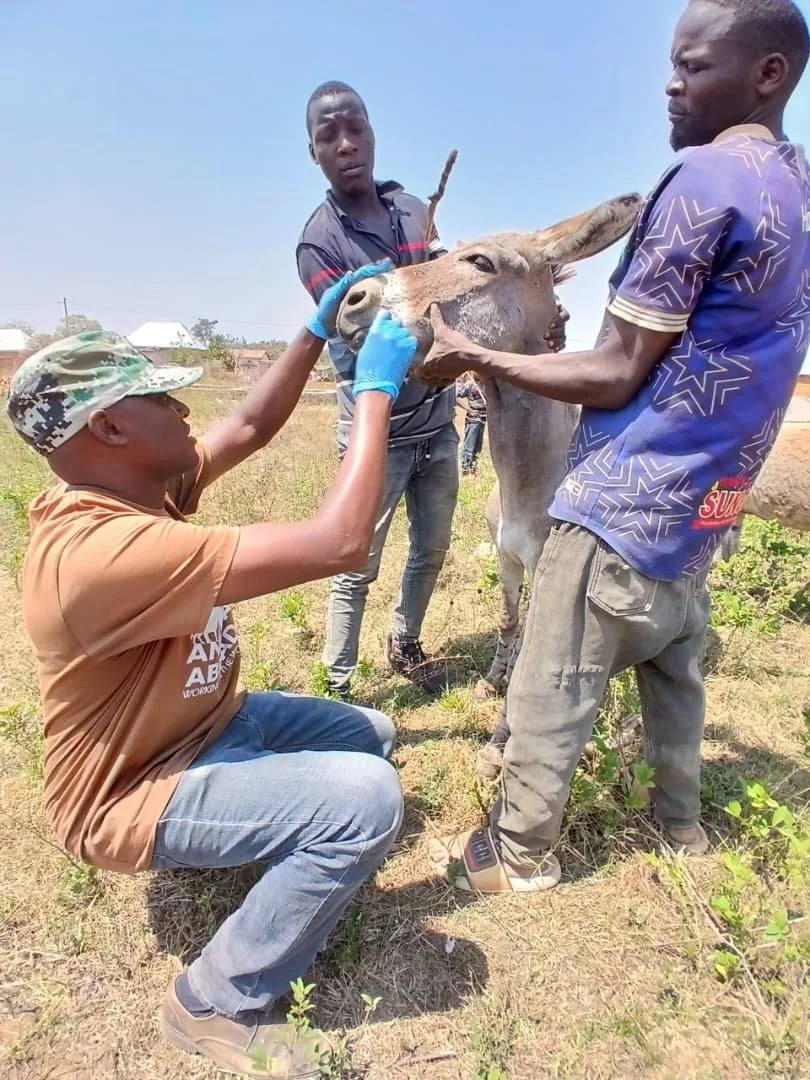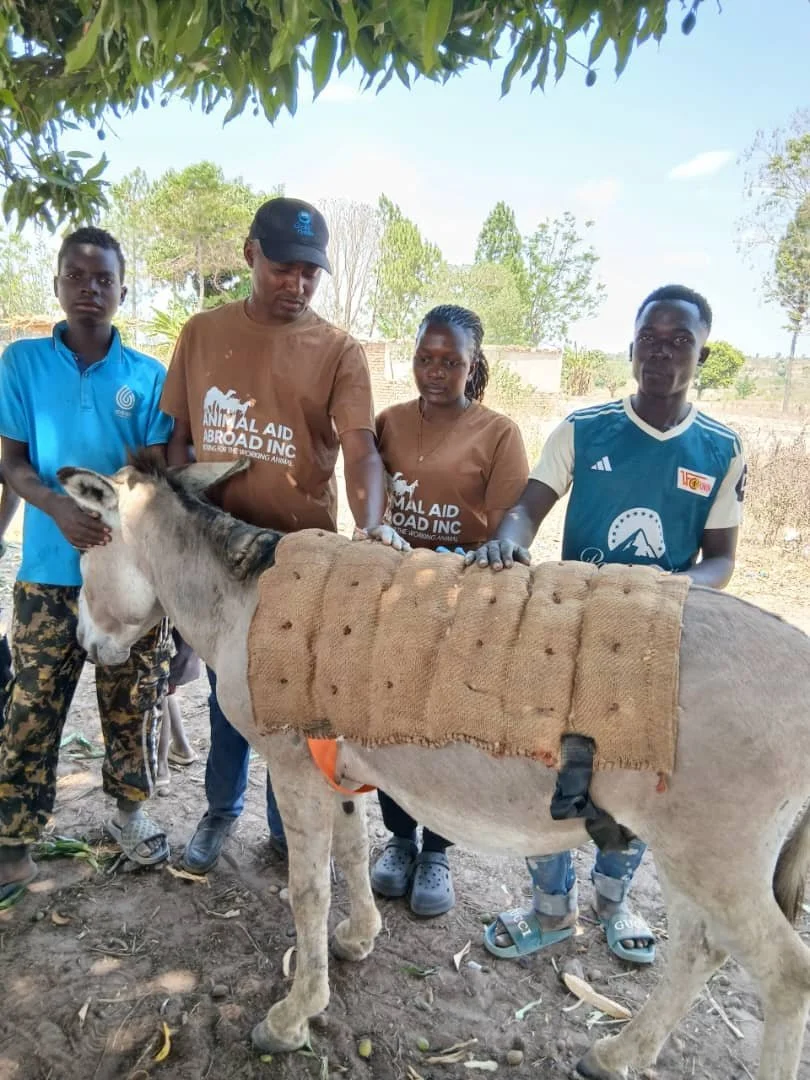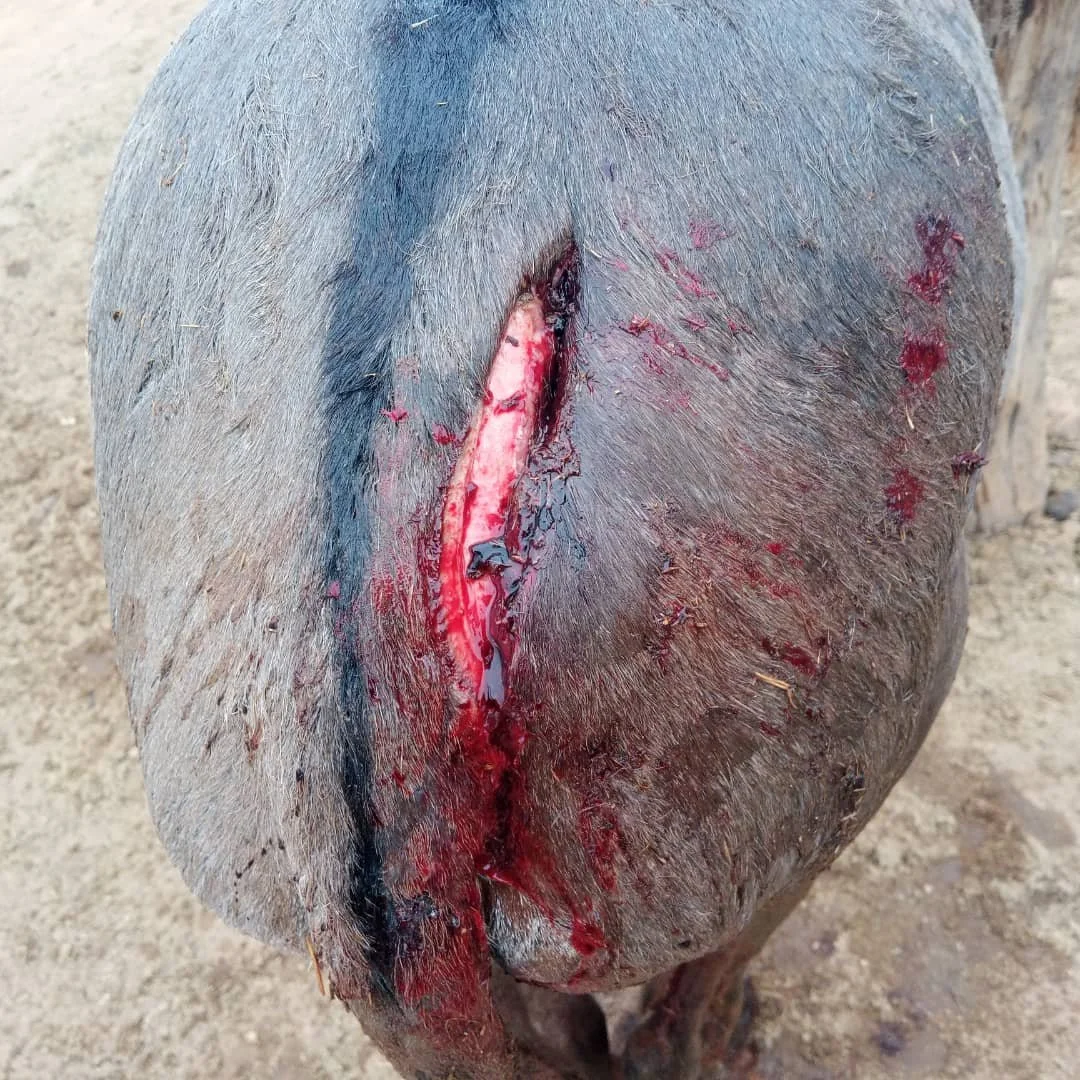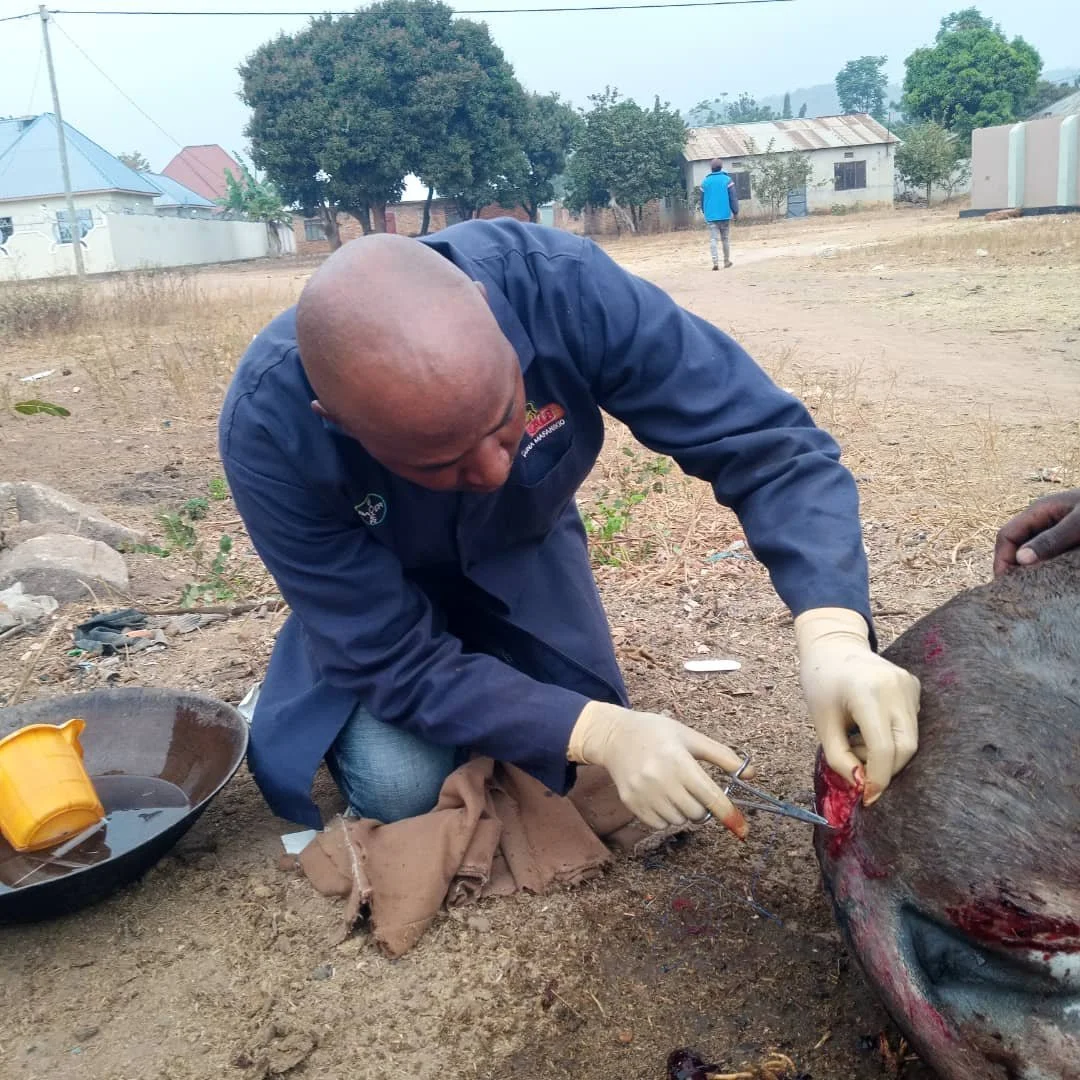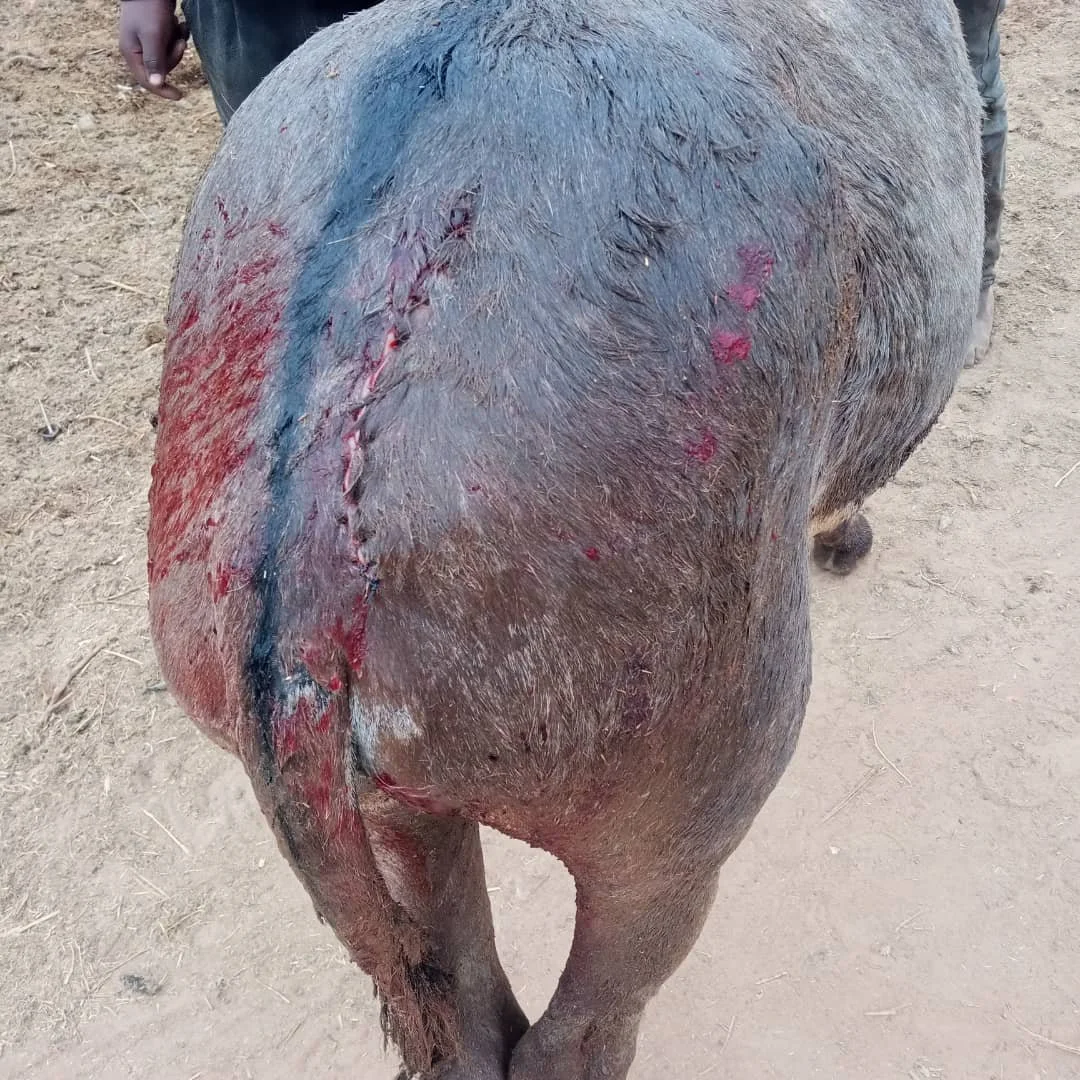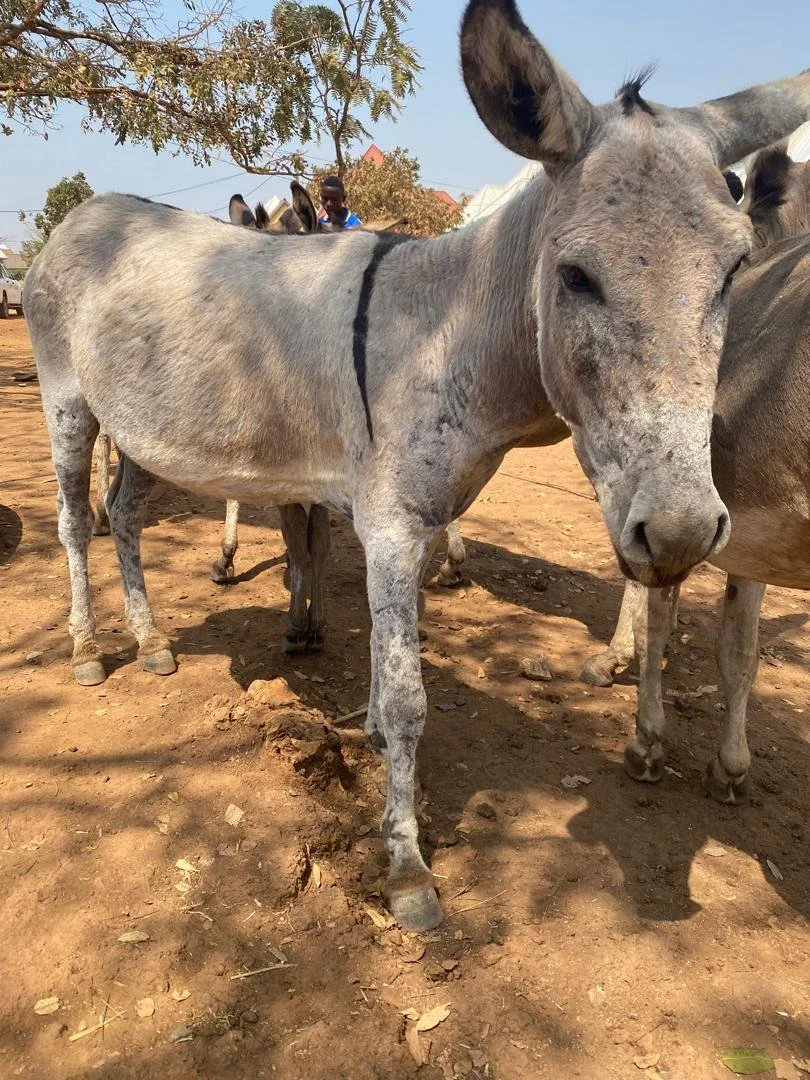Alleviating Suffering, Restoring Hope: Easing the Burden of Donkeys Working in Gold Mines
Thanks to your compassionate support, our partner group in Tanzania - Lake Zone Animal Welfare Organization (LAZAWO) - are continuing to provide care, comfort and healing for the hard-working donkeys of Geita’s gold mines.
See their full September report below:
1. September Summary
This September, our team reaffirmed their dedication to the hardworking donkeys of Geita’s six gold mines. Through daily field visits and monthly mobile clinics, we uncovered hidden suffering including wounds, haematomas, diseases, and the silent toll of relentless labour. Without timely care, these loyal animals would endure ongoing pain; their struggles invisible to many.
With the generous support of Animal Aid Abroad (AAA), we provided life-changing interventions by treating injuries, offering expert guidance on humane handling, educating communities, and distributing padded harnesses to ease the burden of work. Every wound healed and every donkey who is made more comfortable reflects not only our team’s commitment but AAA’s compassion in action.
Through these efforts, hope is restored, suffering is relieved, and the dignity of these tireless animals is honoured. Together, we can transform the lives of those who silently give so much.
2. Veterinary Conditions
Last month, 374 donkeys presented with a wide range of medical conditions. Each case told a story of resilience, endurance, and the silent toll of daily labour. Common issues included wounds, abscesses, eye infections, hoof-related lameness, idiopathic diarrhoea, trypanosomiasis, haematomas, mange, pneumonia, and work-related ptyalism (hypersalivation).
Each donkey received appropriate veterinary care including wound suturing, surgical drainage, anti-parasitic therapy, antibiotics, supportive treatments, and owner education. The prognosis for most animals was favourable, reflecting the positive impact of timely intervention.
Every donkey we attended served as a reminder of the courage, patience and loyalty these animals embody, and of the vital role our compassion and care play in easing their burdens as they continue their tireless work in the mines.
3. Follow-Up Activities
3.1 Mashabala with a hind limb fracture now weight-bearing
Mashabala is a loyal and hard-working donkey who first presented with a hind limb fracture in August. He continued to receive close monitoring and compassionate care throughout September. The fracture - immobilised with a plaster of Paris cast - has shown very promising improvement.
Recently, Mashabala began bearing weight more confidently. With our continued presence, careful observation, and insistence on rest and reduced workload, his prognosis remains favourable. His recovery is a testament to the tangible difference your support makes in the lives of working donkeys.
3.2 General follow-ups
Throughout September, we conducted follow-up visits for every donkey previously treated, carefully monitoring their recovery. These visits focused on wound healing, supporting owners with proper home care, evaluating responses to treatments (particularly antibiotics and anti-inflammatories) and identifying any complications early.
Owners shared encouraging feedback, with many treated donkeys showing visible improvements and some fully restored to health. This ongoing care highlights the power of consistent community engagement and timely veterinary support in safeguarding the wellbeing of these animals.
4. Training and Outreach
In September, we conducted two successful field clinics and community outreach sessions in Lwamgasa and Stamico. The sessions focused on humane donkey management, preventative healthcare and appropriate feeding strategies, with special emphasis on the importance of supplements during prolonged dry seasons.
During the field clinics, 125 donkeys received veterinary care, treatment and welfare support, while 57 owners and handlers took part in hands-on training sessions covering best practices in donkey care and handling.
As previously reported, we also distributed 50 padded collars and saddles. These have been instrumental in promoting more humane handling, while reinforcing the communities’ commitment to sustained welfare practices.
4.1 Impact of the clinics and outreach
Thanks to your support, lasting change is taking root in the mining communities. The donkey clinics have not only improved animal health but have also sparked a shift in the way owners care for their working partners. Padded harnesses have nearly eliminated painful sores, and owners are showing a new eagerness to learn and adopt humane handling techniques. Some owners who have not yet received our free harnesses even began improvising with cloth padding to protect their donkeys.
With early diagnosis and quick treatment now available, many health problems are being addressed before they become serious. Even more importantly, the LAZAWO team has built deep trust with the community, creating a foundation for long-term collaboration.
Collapsed animals, once a common sight, are now far fewer, thanks to enforced prohibition of working during hot periods and providing regular access to water. These small changes make a big difference to donkey welfare.
Encouragingly, local government officials have stepped forward as allies. They are enforcing rules to prevent work during the hottest hours of the day and prohibiting the use of injured donkeys, with penalties for those who do not comply. With your help - and with the community’s growing commitment - the LAZAWO team is confident these measures will continue to reduce suffering and secure a brighter, healthier future for the donkeys and the families who depend on them.
5. Case Study
5.1 Sajo who was injured in Magenge.
Sajo sustained a severe injury while performing his daily duties at a gold ore-loading site. A loading attendant accidentally threw a spade during a shift change. The spade struck Sajo in the gluteal area, causing a deep and painful laceration.
When our team was called to attend to Sajo, he was in significant distress and experiencing considerable pain. Recognising the severity of his injury, we administered sedation using xylazine and ketamine to safely manage the wound. Under sedation, the wound was thoroughly cleaned and sutured. Appropriate antibiotics and pain management were provided.
This case was one of the most severe and memorable last month due to the extent of the injury and the level of care required. Thanks to timely veterinary intervention, Sajo is now recovering well and regaining his strength.
Sajo’s case highlights both the vulnerability of working donkeys and the critical importance of prompt veterinary care. His recovery is a testament to the positive impact of community support in safeguarding the welfare of working animals like Sajo.
6. Gaps and Challenges
As noted in previous reports, providing proper veterinary care - particularly diagnostic capabilities - remain challenging due to the lack of essential equipment. We still lack a microscope to aid in laboratory diagnosis for basic blood tests, as well as a nasogastric tube for oral fluid therapy to manage cases such as colic and other gastrointestinal conditions. These tools are vital for strengthening diagnostics and improving both the speed and quality of care. We are deeply grateful for your ongoing efforts to address these diagnostic challenges.
Prolonged dry periods, which severely affected areas such as Mgusu, have contributed to poor health conditions in donkeys. Thanks to AAA’s immediate support, we were able to begin a supplementation program, and we are working out long-term solutions for these conditions.
7. Acknowledgement and Appreciation
With hearts full of gratitude, we thank AAA’s donors for your compassion and steadfast support. In the face of drought and hardship, your monthly funding for veterinary care and emergency feed supplements for Mgusu have been a true blessing for Geita’s gold mine donkeys and their caretakers. Through your generosity, donkeys have been treated, their hunger eased, and hope restored - you have brought comfort and strength to these animals who work so hard.
Your kindness has also reached beyond the animals, particularly when Dr Kagaruki - our devoted veterinarian - was injured in an accident in early September. Your immediate funds for his medical treatment showed deep compassion and understanding. This not only aided his recovery but also reminded us all that your kindness knows no bounds.
On behalf of LAZAWO and the entire Geita community, we express our heartfelt thanks for turning suffering into healing and despair into dignity. Your compassion continues to touch the lives of both animals and humans in the most profound way.
